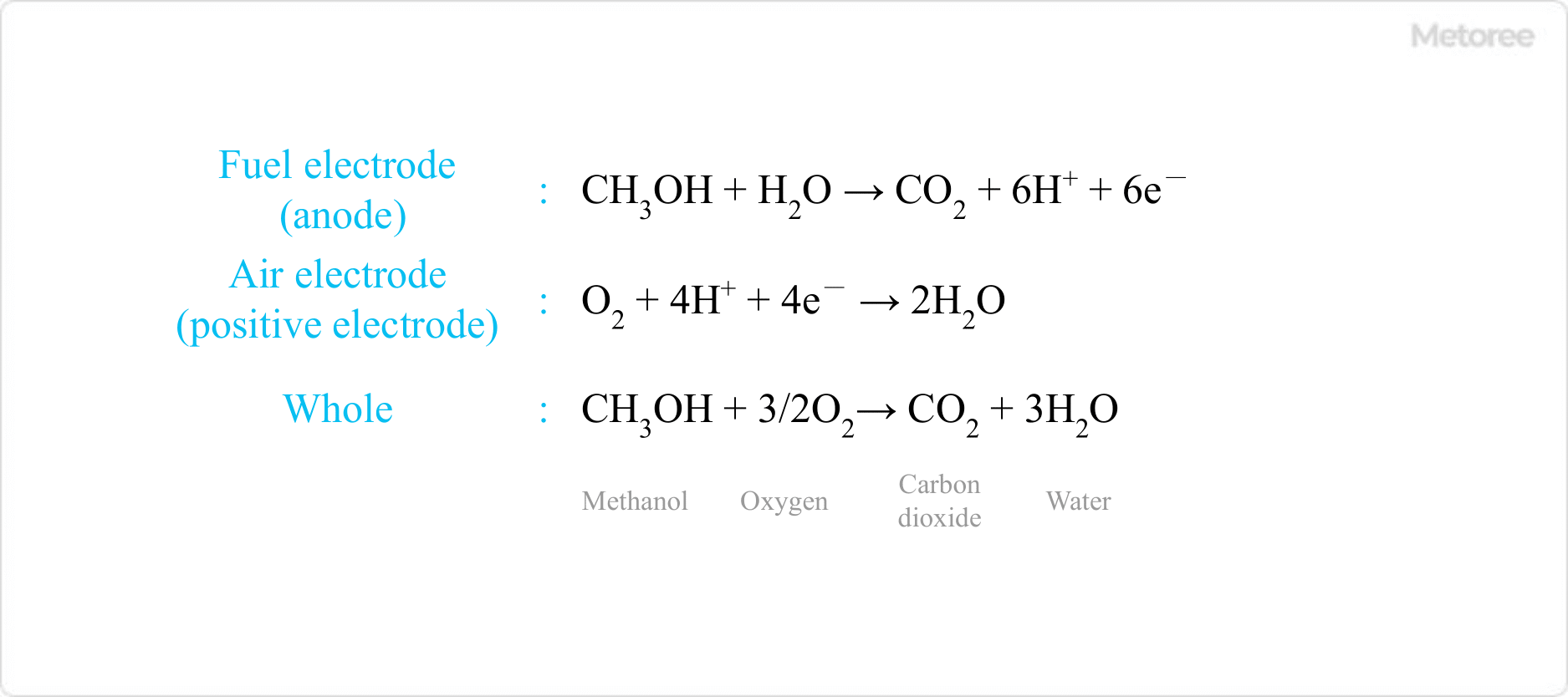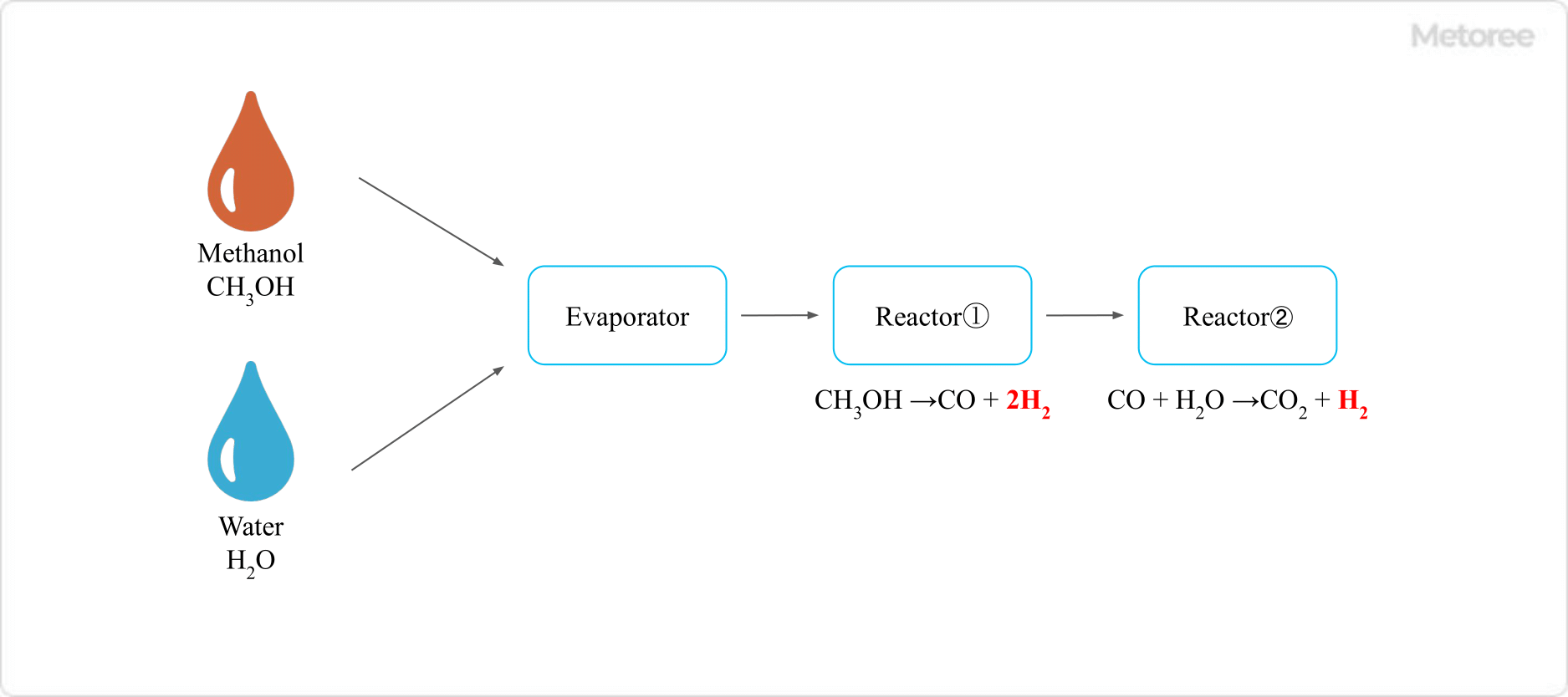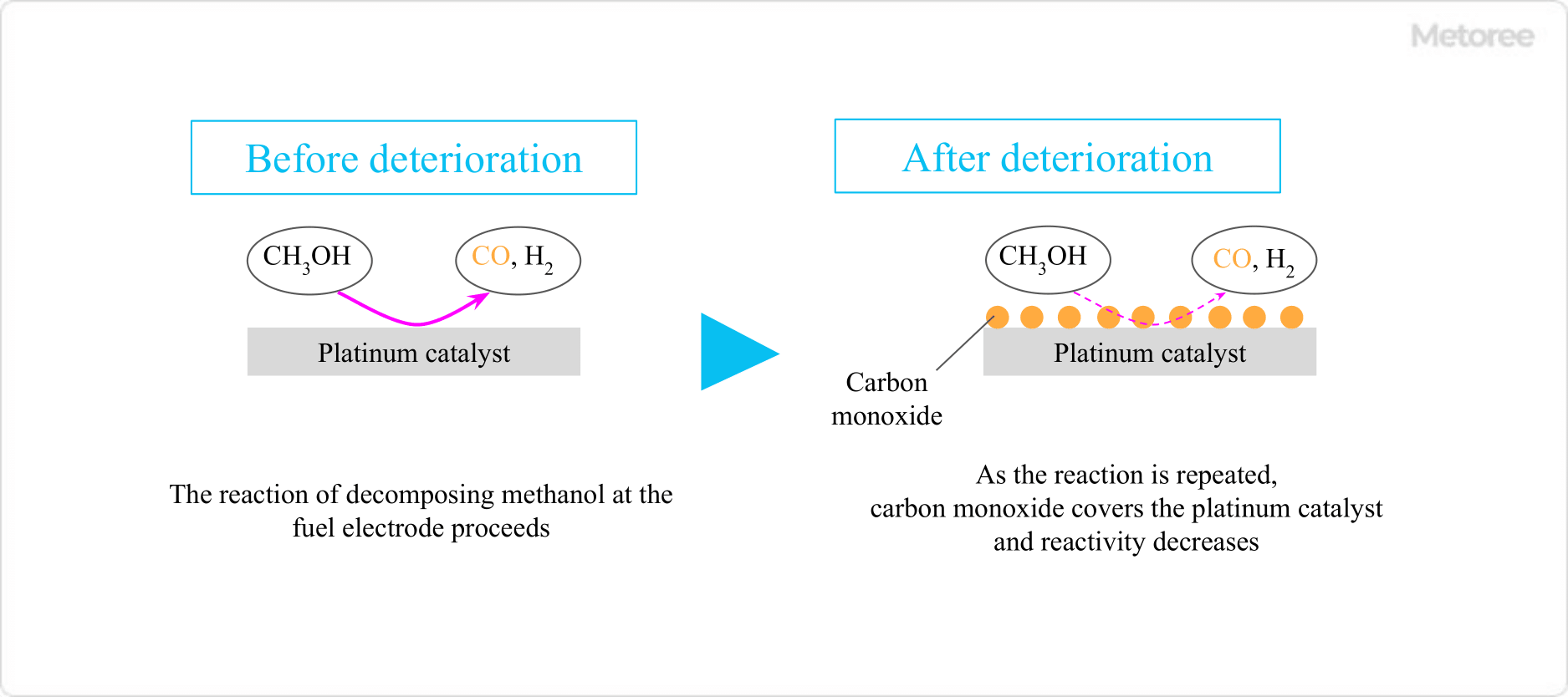All Categories
History









This section provides an overview for methanol fuel cells as well as their applications and principles. Also, please take a look at the list of 9 methanol fuel cell manufacturers and their company rankings. Here are the top-ranked methanol fuel cell companies as of March, 2026: 1.Ensol Systems, 2.Giner Inc., 3.Fuel Cell Systems.
Table of Contents
Categories Related to Methanol Fuel Cells
Methanol fuel cells are a type of fuel cell that directly uses methanol as fuel.
Fuel cells are fueled by hydrogen, but the introduction of fuel cells has been a hurdle due to the need for large-scale equipment to generate hydrogen gas and the high cost of equipment to transport and store explosive hydrogen gas.
However, methanol, being a liquid, can be stored in a smaller volume than hydrogen gas, making it possible to downsize fuel cells. It is also easier to handle than hydrogen gas, making the introduction of fuel cells easier. For these reasons, applications in mobile devices are expected.
Methanol fuel cells can be used just like regular batteries as long as the batteries can generate electricity.
Although the switch from gasoline-powered to fuel cell vehicles is underway to reduce carbon dioxide emissions, most current fuel cell vehicles are hydrogen-powered. This is because there are still some challenges in generating electricity with methanol fuel cells.
However, as methanol fuel cells become more common, they could be used to power cars and rechargeable batteries for smaller smartphones and other devices.
There are two main types of methanol fuel cells: direct and reforming.

Figure 1. Reaction equation of a methanol fuel cell
Methanol fuel cells are fuel cells that use methanol directly as fuel, and are often referred to as methanol fuel cells. It consists of a fuel electrode (anode), where methanol reacts, and an air electrode (cathode), where oxygen from the air reacts. The reaction equation at each electrode is shown in Figure 1.
The reaction of methanol in aqueous methanol solution generates electrons through the action of a catalyst such as platinum in the fuel electrode, which continues to react as long as the fuel continues to be used. By generating electricity while supplying methanol, the fuel can be used for a long period.

Figure 2. Modification of methanol
Reforming refers to extracting hydrogen from methanol. Since the extracted hydrogen is used as fuel to generate electricity, the principle of power generation is exactly the same as that of general hydrogen fuel cells, but since the starting material is methanol, these cells are also sometimes referred to as methanol fuel cells.
In methanol reforming, methanol is mixed with water vapor and reacts with a catalyst such as copper, zinc oxide, or aluminum oxide, which ultimately decomposes it into hydrogen and carbon dioxide.
Since this reaction is endothermic, heat must be supplied from an external source to advance the reaction. Although it is preferable to react at high temperatures to accelerate the progress of the reaction, the catalytic activity of the above catalysts is deactivated at temperatures above 300°C.
Typical characteristics of methanol fuel cells include:
While a typical fuel cell requires a hydrogen tank as well, methanol fuel cells can be made smaller because there is no need for a hydrogen tank. In addition, they do not rotate a turbine as in thermal or nuclear power generation, so they can generate electricity with quiet operation.

Figure 3. Decrease in reactivity of methanol fuel cell
In methanol fuel cells, the catalyst on the anode side that comes into contact with the methanol solution is contaminated by carbon monoxide, an intermediate product, resulting in reduced reactivity. This also shortens the life of the fuel cell itself.
Another major issue is the methanol crossover phenomenon, in which methanol permeates the electrolyte and reaches the air electrode, resulting in lower power generation efficiency and lower battery voltage. It can be said that fuel cells using methanol, which is inexpensive and easily stabilized but has a short product life, will take time to become widely used.
*Including some distributors, etc.
Sort by Features
Sort by Area

Giner Inc. is a designer and manufacturer of electrochemical solutions established in 1973 and headquartered in Newton, Massachusetts. The company offers regenerative fuel cells, electrolyzer stacks, marijuana sensors, and cell and tissue preservation supplies. These solutions and products are used in lithium batteries, green chemicals, THC testing, cancer detection, satellite positioning, and other solutions in aerospace and defense, green hydrogen production, and other major chemical production industries.

Ensol Systems, established in 2006, is a Canadian-based manufacturer of power, lighting, communications, and surveillance hardware and software systems headquartered in Surrey, British Columbia. The company offers various technologies including energy solutions, security and surveillance systems, remote data monitoring and acquisition solutions, drone expedition systems, and industrial communications. The company also has turnkey systems that allow it to offer design, fabrication, manufacturing, field deployment as well as ongoing management solutions to its customers in the clean power, communications, data infrastructure, and field technology applications.

Roland Gumpert, established in 2017 and located in Ingolstadt, Germany, is a manufacturer of a fuel cell-powered electric sports car. The company has produced the series model of the Nathalie "First Edition" 2020, marking the start of production for the first series model sports car powered with a methanol fuel cell. It has also produced sports cars like the all-wheel drive of the Audi Quattro rally vehicle and the Gumpert Apollo super sports car. It combines the best green driving technologies, including electric, hydrogen, and eFuels.

Fuel Cell Systems, established in 2010, is a manufacturer and supplier of fuel cells headquartered in Hungerford, Berkshire, UK. It offers fuel cells under the EFOY brand as well as enclosures, remote monitoring systems, and fuel cartridges. The company offers fuel cells utilized for a broad range of applications including CCTV, environmental monitoring, wildlife filming and traffic signage in the oil and gas, security and telecommunications industries. In addition to standard manufacturing, the company also works with manufacturers and other partners to integrate products into a specific solution.

Mitsubishi Gas Chemical Trading, Inc. (MGCT) is a distributor of electronics manufacturing materials, chemicals, and engineering plastics established in Tokyo in 2018 as a subsidiary of Mitsubishi Gas Chemical Company, Inc. (MGCC). The company primarily stocks various electronics manufacturing materials such as conductive pastes and solder-resistant inks for smartphones or PCBs, basic chemicals like methanol and ammonia for creating synthetic resins or fibers, and engineering plastics, sheets and films for molding. These supply MGCT's buy-and-sell operations that serve client manufacturers in the food and beverage, petrochemical, pharmaceutical and consumer electronics industries.

SFC Energy AG, established in 2000 and based in Brunnthal, Germany, is a manufacturer and supplier of hydrogen and direct methanol fuel cells designed for both stationary and mobile hybrid power solutions. The company product lineup includes offerings like the EFOY Hydrogen Fuel Cell 2.5, EFOY Pro fuel, EFOY fuel cells, SFC Energy, and SFC Power Manager 3G. These power solutions are instrumental in providing efficient electrical energy for a wide range of applications, including measuring and early warning stations, defense systems, traffic monitoring, mobile homes, yachts, and various other sectors.

Solar Impulse Foundation, headquartered in Lausanne, Switzerland, is a pioneering organization devoted to advancing clean and sustainable technologies. Established in 2016, the foundation is a driving force behind groundbreaking solutions that address environmental challenges and promote energy efficiency. The Solar Impulse Foundation works on identifying and promoting cutting-edge clean technologies through its "Solar Impulse Efficient Solution" label. This label recognizes and supports products, services, and processes that have a positive impact on the environment and add to a more sustainable future.


FC TecNrgy Pvt. Ltd., founded by Col Karandeep Singh (Retd) in 2016 and headquartered in Gurgaon, Haryana, India, is a supplier of direct methanol and hydrogen fuel cells for stationary and mobile hybrid power supply solutions. The company’s product portfolio comprises Direct Methanol Fuel Cells (DMFC) and Hydrogen Fuel Cells, multi utility power banks, fuel cartridges, intelligent power management solutions, and energy management solutions. These products offer solutions in telecom, defense & homeland security, smart cities, oil & gas, and command control centers and data centers.
Ranking as of March 2026
Derivation Method| Rank | Company | Click Share |
|---|---|---|
| 1 | Ensol Systems |
18.9%
|
| 2 | Giner Inc. |
13.6%
|
| 3 | Fuel Cell Systems |
12.7%
|
| 4 | Advent Technologies Holdings Inc. |
10.7%
|
| 5 | Roland Gumpert |
10.3%
|
| 6 | FC TecNrgy Pvt. Ltd. |
9.6%
|
| 7 | Solar Impulse Foundation |
8.8%
|
| 8 | Mitsubishi Gas Chemical Trading, Inc. |
8.4%
|
| 9 | SFC Energy AG |
7.0%
|
Derivation Method
The ranking is calculated based on the click share within the methanol fuel cell page as of March 2026. Click share is defined as the total number of clicks for all companies during the period divided by the number of clicks for each company.Number of Employees
Newly Established Company
Company with a History
*Including some distributors, etc.
*Including some distributors, etc.
| Country | Number of Companies | Share (%) |
|---|---|---|
 United States of America
United States of America
|
1 | 14.3% |
 Canada
Canada
|
1 | 14.3% |
 United Kingdom
United Kingdom
|
1 | 14.3% |
 Japan
Japan
|
1 | 14.3% |
 Germany
Germany
|
1 | 14.3% |
 Switzerland
Switzerland
|
1 | 14.3% |
 India
India
|
1 | 14.3% |
11 products found
11 products
Denki Kogyo Co., Ltd.
590+ people viewing
Last viewed: 1 day ago
This is an emergency generator that produces hydrogen from liquid fuel (methanol water) that is not subject to national regulations and generates e...
J Science Lab Co., Ltd.
450+ people viewing
■Summary This is a device that functionally integrates the "gas supply (flow rate control)," "humidification control," "temperature control," "safe...
Denki Kogyo Co., Ltd.
730+ people viewing
This is an emergency generator that produces hydrogen from liquid fuel (methanol water) that is not subject to national regulations and generates e...
Enoa Co., Ltd.
620+ people viewing
Last viewed: 1 day ago
■Electronic load operation function Our FCT series is equipped as standard with a current sweep operation function that is essential for I-V charac...
Enoa Co., Ltd.
400+ people viewing
Last viewed: 8 hours ago
■Electronic load operation function Our FCT series is equipped as standard with a current sweep operation function that is essential for I-V charac...
4 models listed
Enoa Co., Ltd.
600+ people viewing
Last viewed: 1 day ago
■Electronic load operation function Our FCT series is equipped as standard with a current sweep operation function that is essential for I-V charac...